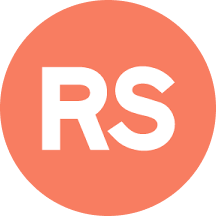Consumer sentiment fell in September, continuing a downward trend from the previous month. This decline comes as government data indicates a slowdown in hiring and a rise in inflation, raising fears of a potential economic situation known as "stagflation." The latest figures were below economists' expectations.
The University of Michigan's survey data revealed that consumer attitudes have worsened since President Trump took office. At its lowest point, consumer sentiment approached levels not seen since a significant inflation period three years ago. Currently, the measure remains below its December 2016 levels.
Inflation expectations for the year ahead held steady at 4.8%, according to the data. This figure suggests that respondents anticipate inflation to remain significantly above the current rate of 2.9%. Long-term inflation expectations have also increased for the second month in a row.
This report follows a recent inflation reading that showed price increases in August, coinciding with the intensification of President Trump's tariff policies. Inflation is currently at its highest since January but remains just under the Federal Reserve's target rate of 2%.
Consumer spending, which constitutes about two-thirds of U.S. economic activity, is a critical indicator of the economy's health. The recent survey arrives at a precarious time for the economy. A jobs report released last week indicated a sharp decline in hiring for August, extending a period of weak labor market performance. Additionally, a revision of earlier hiring estimates revealed that the U.S. economy added significantly fewer jobs in 2024 and early 2025 than previously thought, raising concerns about the job market's stability.
Some analysts warn that these economic conditions could lead the U.S. toward a recession, although the economy has so far avoided the widespread job losses typically associated with such downturns. The current economic landscape presents a challenge for Federal Reserve policymakers. If the Fed raises interest rates to combat tariff-induced inflation, it risks pushing the economy into a recession. Conversely, lowering rates to stimulate the economy amid a hiring slowdown could exacerbate inflation.
In light of the struggling labor market, the Fed is anticipated to cut interest rates during its upcoming meeting. Investors currently estimate a 92% chance of a quarter-point rate cut this month, with a 7% likelihood of a half-point cut, according to market sentiment indicators.

 America News
America News

 Essentiallysports Football
Essentiallysports Football WFMJ-TV Entertainment
WFMJ-TV Entertainment People Shopping
People Shopping Real Simple Home
Real Simple Home Raw Story
Raw Story CNBC
CNBC NPR
NPR Columbia Daily Tribune
Columbia Daily Tribune The List
The List